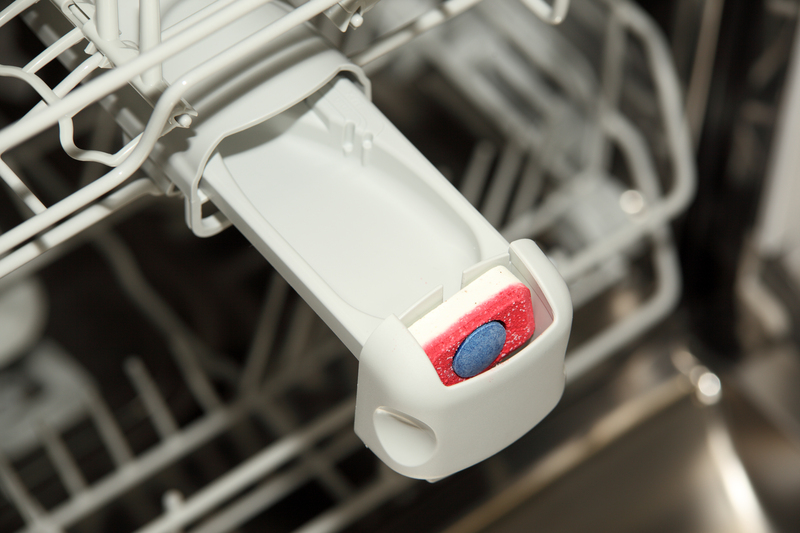Optimal Approaches for Diverse Bathroom Materials
Posted on 20/04/2024
When it comes to designing and renovating a bathroom, choosing the right materials plays a crucial role. From flooring and countertops to shower walls and cabinets, every aspect of the bathroom requires careful consideration. The multitude of options available in the market can often be overwhelming, making it difficult to determine the optimal approach for diverse bathroom materials. However, with proper knowledge and understanding of the different materials, you can create a beautiful and functional bathroom that suits your needs and preferences. In this article, we will discuss some essential factors to consider when selecting bathroom materials and highlight the pros and cons of each option.
Best Materials for Bathroom Flooring
The flooring in a bathroom is exposed to high moisture levels and potential spills, making it essential to choose a material that is waterproof and durable. Some popular choices for bathroom flooring include porcelain tiles, vinyl, and natural stone such as marble or granite.
Porcelain tiles are a top choice for bathrooms due to their water-resistant properties and wide array of design options. They are also highly durable, easy to maintain, and budget-friendly. On the other hand, vinyl flooring offers similar benefits but at a lower cost. It is an excellent option for those looking for a budget-friendly yet stylish flooring option.
Natural stone flooring adds a touch of luxury to any bathroom but requires more maintenance compared to porcelain or vinyl. While marble and granite provide a sophisticated look, they are susceptible to stains from water or beauty products if not sealed properly.

Choosing the Right Countertops
Countertops in the bathroom need to withstand daily exposure to water, heat, and chemicals without getting damaged. Popular choices for bathroom countertops include quartz, granite, marble, and solid surface materials such as Corian.
Quartz has gained popularity in recent years due to its durability, low maintenance needs, and versatile design options. It is non-porous, making it resistant to mold and mildew growth while also being heat resistant. Granite is another popular choice for its natural beauty and durability. However, it requires sealing to prevent staining from water or beauty products.
Marble countertops add a touch of elegance to any bathroom but require regular maintenance to keep them looking their best. If properly sealed, they can withstand daily use without getting damaged. Solid surface materials like Corian offer endless design possibilities and are also resistant to stains and bacteria growth.
Shower Walls: Tile or Fiberglass?
When it comes to shower walls, homeowners often have to choose between tile and fiberglass. Both options have their pros and cons, and the decision ultimately depends on personal preference and budget.
Tile is a popular choice for its durability, water resistance, and design flexibility. It is available in a variety of colors, patterns, and textures, making it easy to create a unique shower space. However, tile installation can be time-consuming and expensive.
Fiberglass is a cost-effective option for those on a tight budget. It is lightweight, easy to install, and low maintenance. However, it may not provide the same level of customization as tiles, and it may develop cracks over time due to frequent use.

Cabinets for Storage and Style
Bathroom cabinets serve both functional and aesthetic purposes. They provide storage space for toiletries while also adding to the overall look of the bathroom. When choosing cabinets for your bathroom, consider the material's durability, water resistance, and style.
Solid wood cabinets are a classic option that adds warmth and character to the bathroom. They are durable but require proper sealing or finishing to withstand moisture. MDF (Medium-Density Fiberboard) cabinets are an affordable alternative with high moisture resistance but may not last as long as solid wood.
Takeaways
- Consider the durability, water resistance, and maintenance needs when selecting materials for your bathroom.
- Choose flooring materials that can withstand high moisture levels such as porcelain tiles or vinyl.
- Consider quartz or granite for countertops that are both durable and stylish.
- Tile is a popular choice for shower walls, but fiberglass can be a budget-friendly alternative.
- Solid wood cabinets add warmth and character to the bathroom, while MDF provides high moisture resistance at a lower cost.
Pros and Cons of Diverse Bathroom Materials
Every material has its advantages and disadvantages. Here are some of the pros and cons of using different materials in your bathroom:
Pros:
- Porcelain tiles, vinyl, and quartz are budget-friendly options.
- Marble, granite, and solid surface materials offer a wide range of design possibilities.
- Tile provides durability and customization options for shower walls.
- Solid wood cabinets add warmth and character to the bathroom.
Cons:
- Natural stone materials such as marble and granite require regular sealing to prevent staining.
- Fiberglass shower walls may develop cracks over time.
- Solid wood cabinets may not withstand moisture without proper sealing or finishing.
In conclusion, choosing the optimal approach for diverse bathroom materials involves understanding your needs, preferences, and budget. By considering the durability, water resistance, maintenance needs, and design possibilities of each material, you can create a beautiful and functional bathroom that suits your style.
Latest Posts
How a Clean Home Refreshes Your Mental State
Green Cleaning Hacks for a Sparkling and Sustainable Space
Discover the Best Home Remedies for Tackling Stubborn Grease Stains




